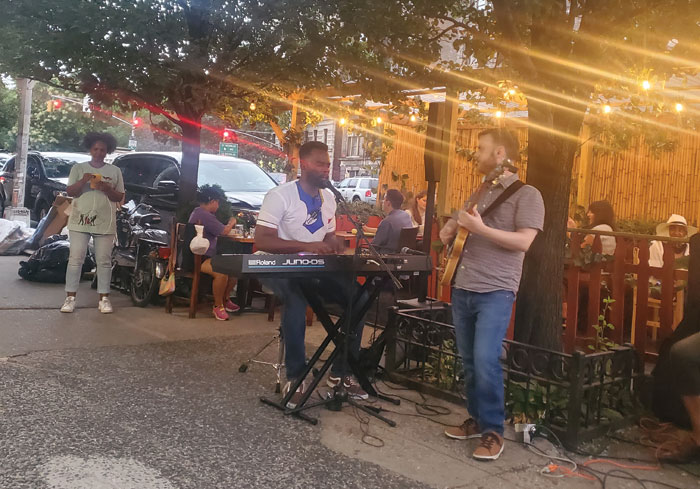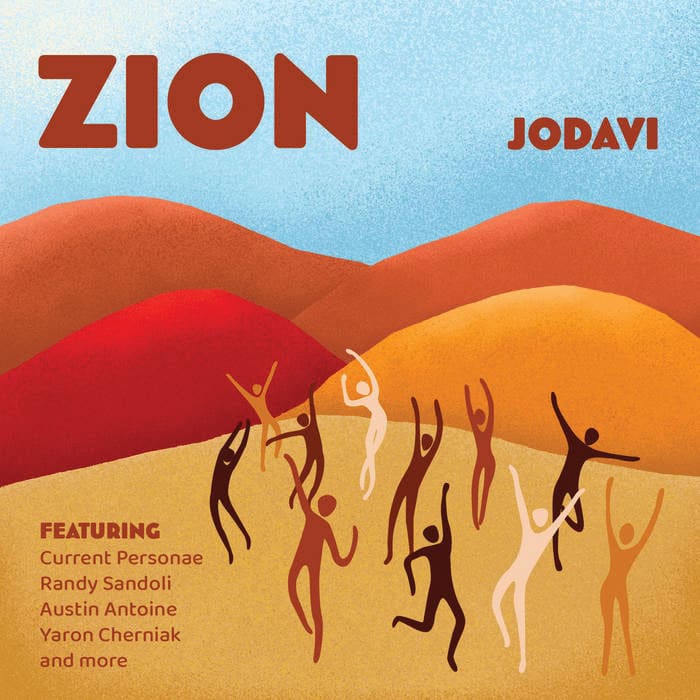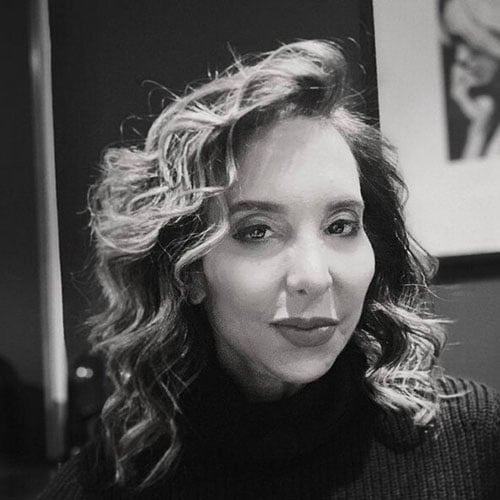 JoDavi performing at the Tsion Café
JoDavi performing at the Tsion Café Take my life but you’ll never take my soul
I will meet my Father face to face
And see the new Jerusalem
It’s the chorus from the new song “State of Freedom,” by Joshua David Washington — JoDavi — from his latest full-length album, “Zion.” The verses of the song are based on Elazar ben Yair’s final speech in the Great Revolt against the Romans (66-70 AD). I was fortunate to be able to hear Washington sing twice in New York City on his “Zion” tour.
The second night was truly a magical — majestic — evening. Washington and his band played at the Tsion Café, a restaurant in Harlem opened eight years ago by Ethiopian Israeli Beejhy Barhany. Between Washington’s spiritual music and the café’s soulful ambience and savory Ethiopian food, the evening felt more meaningful than some Shabbat services I’ve attended.
”Marching upward to Zion is an imagery often used in the Black American church tradition. It is a place where G-d restores our soul, edifies our bodies, and shields us from our enemies.” – Joshua David Washington
“Zion to me is both a physical and spiritual place,” Washington told the Journal. “To Zion is where the rest of the lost tribes of Israel will return. But Zion also represents a place of higher calling and purpose. Marching upward to Zion is an imagery often used in the Black American church tradition. It is a place where G-d restores our soul, edifies our bodies, and shields us from our enemies.” The soul of Zion, it seems, is a movable feast.
Washington, who earlier this week performed at the Hotel Café in Los Angeles, calls his music “Cinema Soul.” “It has the sweeping orchestral elements that harken back to Motown and Philly soul, but it also has some reggae and other complementary elements that give it one unified message and sound.” Other songs on the album include “Yom Hashem” and “Shuvu L’Torah.”
(For a full list of Zion’s tour dates, please look here.)
When he’s not creating music, Washington is the executive director of the Institute for Black Solidarity with Israel (IBSI). His father, Dumisani Washington, is founder and CEO of IBSI, and his wife, Olga Meshoe Washington, is national director for programming and engagement at Club Z. Fighting for Israel on the activist front lines, the Washington family knows better than anyone that the rifts between the Black and Jewish communities today were intentionally manufactured by leftist — antisemitic — ideology.
Three Hebrew boys are meant to choose
Between a lie and what is True
They stand up tall before the King
Said “you can throw us to the flames.
It makes no difference what you do,
Cuz we will never bow to you.”
One of the saddest parts of today’s over-emphasis on race is that it destroyed one of the most beautiful aspects of NYC: its intrinsic mosaic of diversity. Playing with children from all backgrounds, my son was raised to not even see skin color; today he is being forced to only see skin color.
 Barhany is working to heal those rifts — not through politics, but through the “harmony and connection” she creates at Tsion. “I wanted to create a space celebrating everyone’s identity.” In 2003, she created the Beta Israel of North America (BINA) Cultural Foundation, to foster greater understanding of Ethiopian Jews. “I’m very proud of who I am, and others should be as well.” Images of the “Ethiopian angel” appear throughout the café.
Barhany is working to heal those rifts — not through politics, but through the “harmony and connection” she creates at Tsion. “I wanted to create a space celebrating everyone’s identity.” In 2003, she created the Beta Israel of North America (BINA) Cultural Foundation, to foster greater understanding of Ethiopian Jews. “I’m very proud of who I am, and others should be as well.” Images of the “Ethiopian angel” appear throughout the café.
When she was four, Barhany’s family made the trek from Ethiopia to Israel, “fulfilling prophecy.” After her IDF service, she traveled around the world a bit and then settled in Harlem’s historically famous Sugar Hill neighborhood. “I felt at home here, and wanted to create a community, but also heal some bonds,” she said. The cafe is filled with art from local artists, jewelry from Ethiopia, and nightly live music of all genres. Barhany says the reaction has been quite positive, with patrons wanting to know more about her past.
The evening of “Zion” and Tsion was distinctly anti-politics. There was no hate or tension in the air. The indomitable spirits of both Washington and Barhany prevailed.
When I came back the next day to talk with Barhany, a young woman introduced herself as a Ukrainian and Ethiopian Jew. Suddenly, I felt very boring. There was no way I was going to say I was from Russia, where my grandparents were born, and Philadelphia didn’t quite have the same panache. So for the first time, I rolled out the ethnicity card: “I’m Judean like you.”
If the soul of “Zion” is a combination of bravery, warmth, and beauty — a feeling of being closer to G-d — then both Washington and Barhany have achieved this in the music and vibe they create. Tsion Café honors both individuality and identity — and the harmony both can create when divisive politics are removed. The space inspired us to think about events we could have there, but just as important the plans we began to make for our sons, who both become men this year.
When my son returns from camp, I will take him up to Tsion to meet his Ethiopian brother, Berhan. Piece by piece, we will begin to put back together the beautiful mosaics of both Judaism and New York City. The light emanating from the soul of Tsion will make it possible. This last verse is from Washington’s “Return.”
The hearts of the fathers return to their children
And the hearts of the children return to their fathers
So it is written, so shall it come to pass.
Karen Lehrman Bloch is editor-in-chief of White Rose Magazine.























 More news and opinions than at a Shabbat dinner, right in your inbox.
More news and opinions than at a Shabbat dinner, right in your inbox.